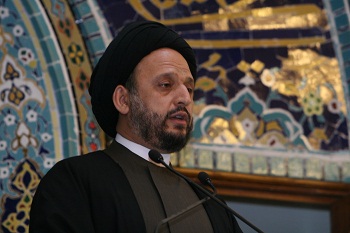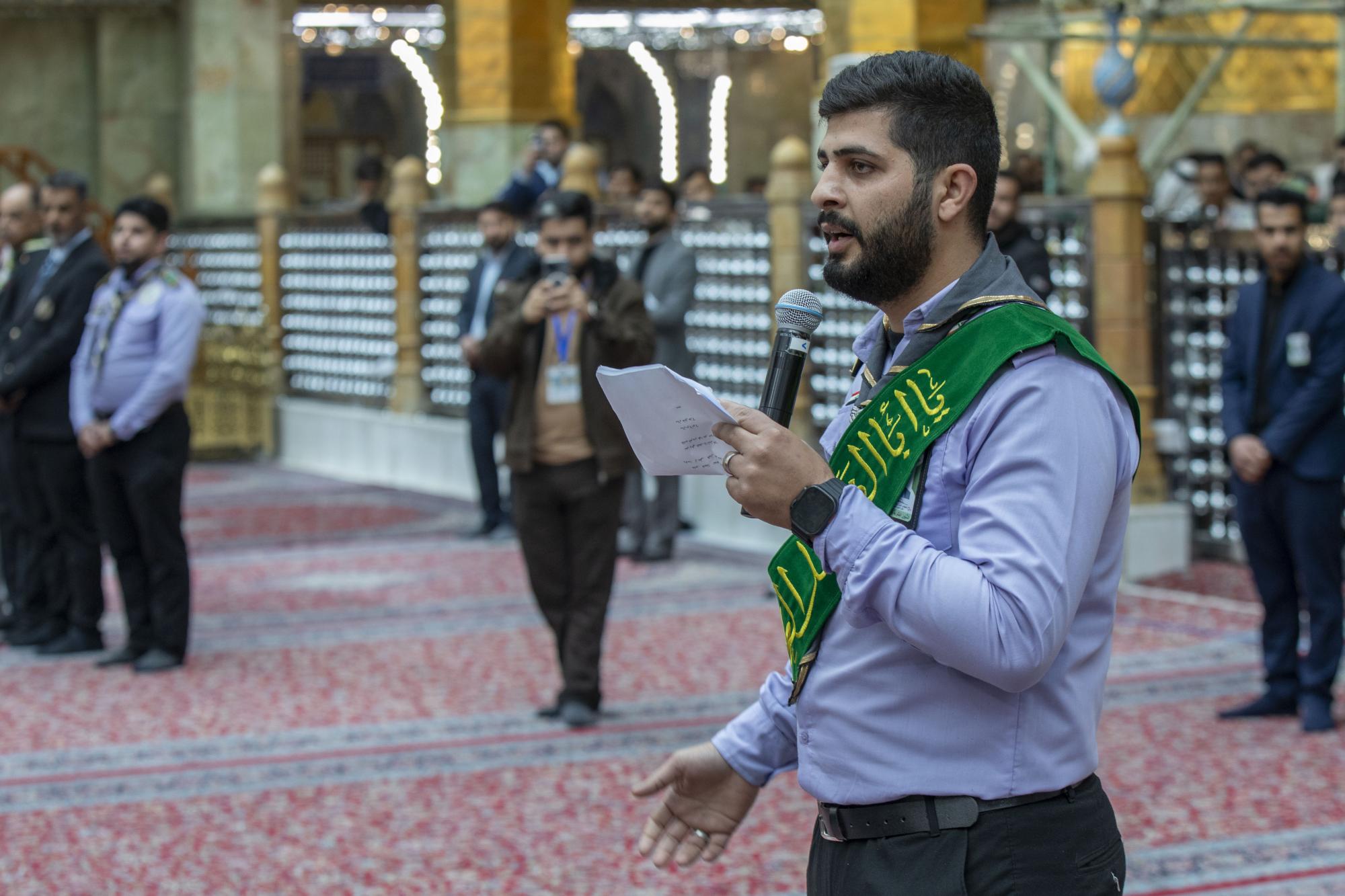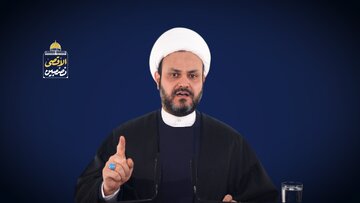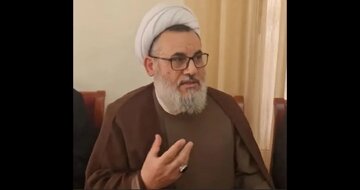His Eminence, Sayyed Ali Fadlullah, delivered the two Friday prayer sermons at the Imamain Al-Hassanain Mosque, Thul-Qi’da 3rd 1435 H. – August, 29th 2014. Several prominent religious scholars, dignitaries and thousands of believers attended the Jumu’a prayer.
Following is a summary:
The First Sermon
In the first sermon, His Eminence, Sayyed Ali Fadlullah, talked about Sulh Al-Hudaybiyya (The Treaty of Hudaybiyya) to demonstrate that we should keep our promises and vows. He explained that the Treaty included an article which stipulated that if someone from Quraish tribe embraces Islam and comes to the Muslims at Medina, then they should turn him back. But if a Muslim wishes to return to the people of Quraish in Mecca, then they can keep him. Although this was seemingly unfair, the Prophet was sure that no Muslim will go back to Mecca, while the Muslims in Medina will endure all the torture and harm inflicted on them by non-Muslims without renouncing their faith.
However, right after the Prophet (p.) singed the Treaty, he had to return a man seeking Islam called Abu Jundal to Quraish to respect his pledges, saying:
"Be patient, submit yourself to the will of Allah. Allah will provide you and your helpless companions relief and the means of escape. We have concluded a treaty of peace with them and we have taken the pledge in the Name of Allah. We, therefore, cannot break the Treaty".
Thus, the Prophet (p.) has given us an objective lesson in keeping one’s pledges, since the Muslims – as the Prophet (p.) wants them – keep their promises and do not change or practice betrayal.
Pledges and promises also extend to the individual and family relations. They also include one’s work and his duties towards the society and the country. Amid this atmosphere, we do not have the right, under any pretenses, not to honor our promises or pledges. It is worth noting that keeping promises goes side by side with truthfulness and trustworthiness.
The second sermon
In the second sermon, His Eminence, Sayyed Ali Fadlullah, began by appreciating the victory of Gaza that was attained by the steadfastness of the Mujahideen and the patience and sacrifice of the people. Although the price of victory was huge, the lesson of Gaza, as was the case in Lebanon, is that all the destruction and losses are not able to break the will of a resisting people, neither in the field nor in the negotiations.
The Sayyed added that those who achieved this victory will be able to preserve it by their unity in the coming stage of political negotiations and by remaining vigilant, for the enemy will seek revenge against the Mujahideen and the Palestinian people, since it is known that it will not honor any commitment it makes once it sees that it has an interest in doing so.
The Arab and Muslim nations and states have to shoulder their responsibilities in this stage of negotiations and reconstruction and not to leave the Palestinians all alone the way they did in the fighting stage, of course with the exception of a few who have and are still offering a lot, although in a discrete manner.
In Iraq, the Sayyed praised all those who prevented the enemies of Iraq from establishing their goal of creating strife following the latest explosions. He also urged for the formation of a national government that is capable of taking the country out of the state of division or federation that is called for by the American vice-president, and which would put the country in a continuous state of war once applied.
On another level, the Sayyed viewed positively the meeting between Saudi and Iranian officials hoping that such meeting will improve the bilateral relations, as well as the general situation in the region.
In Lebanon, the Sayyed called for releasing the kidnapped soldiers as quickly as possible. Faced by the political and economic crisis, the Sayyed called for solidifying the country’s unity to prevent a civil confessional strife, for the time now is as always a time of unity in the face of the dangers that threaten all the parties.
/149





